In today's competitive business landscape, delivering high-quality professional services efficiently is of paramount importance. Professional services organizations, ranging from consulting firms and marketing agencies to IT service providers and legal practices, face a multitude of challenges in managing projects, resources, time, and client expectations. The complexities of such endeavors often demand a comprehensive and integrated approach, preferably within a single platform. This is where a Professional Services Automation (PSA) solution steps in as a game-changer.
What is PSA software?
Professional Services Automation (PSA) software refers to a sophisticated software platform that centralizes and streamlines various aspects of managing professional services businesses. It provides an end-to-end solution to manage projects, resources, time tracking, billing, reporting, and more. In essence, PSA serves as the backbone of a services organization, offering tools to optimize operations, enhance client satisfaction, and drive growth.
Why do you need dedicated professional services automation (PSA) software?
The intricacies of managing professional service operations require more than just a collection of separate tools and manual processes. While generic project management and accounting software may serve some purpose, they often fall short in addressing the specific needs of service organizations. A dedicated professional services automation (PSA) software, purpose-built for the nuances of the industry, provides several compelling advantages:
Integration and centralization
PSA software brings together various functions and processes under one roof. This eliminates data silos, minimizes duplication of efforts, and enhances cross-functional collaboration.
Efficiency and automation
PSA software automate repetitive tasks, such as time tracking, expense reporting, and project invoicing. This not only saves time but also reduces the risk of errors, leading to increased efficiency and accuracy.
Real-time visibility
PSA software also offer real-time insights into project statuses, resource utilization, financial performance, and other critical metrics. This visibility empowers decision-makers with data-driven insights for better strategic planning.
Enhanced client satisfaction
By ensuring projects are delivered on time and within scope, PSA software contribute to higher client satisfaction levels. Improved project management and communication lead to stronger client relationships.
Scalability
As your business grows, a PSA tool scales with you. It can accommodate an increasing number of projects, resources, and clients, ensuring that your operations remain efficient and effective.
Who can benefit from using PSA software?
PSA software is a versatile solution that caters to the unique needs of various industries, allowing businesses to optimize their processes, effectively manage resources, and deliver exceptional client experiences. Let's explore how different industries can benefit from implementing PSA software:
1. Consulting firms
Consulting firms rely heavily on effective project management, resource allocation, and client satisfaction to succeed. With PSA software, consultants can efficiently plan and track projects, allocate resources based on expertise and availability, and ensure smooth collaboration among team members. Additionally, PSA software provides real-time insights into project performance, profitability, and resource utilization, allowing consultants to make data-driven decisions and provide exceptional service to their clients.
2. Marketing agencies
Marketing agencies handle a wide range of projects and campaigns simultaneously, requiring streamlined processes for successful execution. PSA software empowers marketing agencies to manage projects, allocate resources, and track billable hours accurately. It also enables seamless collaboration among team members and integrates with existing tools, such as project management and creative software, to streamline workflows. Through real-time analytics and reports, marketing agencies can track campaign performance, identify areas for improvement, and enhance overall client satisfaction.
3. Legal firms
Law firms handle numerous cases, clients, and billable hours, necessitating efficient time tracking, document management, and accurate billing. PSA software provides law firms with features like time tracking, document management, and expense tracking, ensuring accurate and transparent billing to clients. Furthermore, PSA solutions offer robust integration capabilities, allowing law firms to sync their PSA software with existing legal systems and tools, streamlining operations, and optimizing productivity.
4. Engineering companies
Engineering firms require effective project management, resource allocation, and collaboration to deliver projects on time and within budget. PSA software enables engineering firms to plan and track projects, allocate resources based on skill sets and availability, and streamline document sharing and version control. By utilizing PSA tools, engineering firms can ensure efficient project delivery, increase resource utilization, and improve client satisfaction through timely and accurate project updates.
5. IT services
IT service providers face the challenge of managing multiple client projects, monitoring the utilization of resources, and providing exceptional customer support. A PSA solution helps IT services organizations streamline project management, track billable hours, and effectively allocate resources to meet client demands. By integrating with existing IT tools, such as help desk software and CRM systems, PSA software enhances customer support by providing a centralized platform for tracking and addressing client issues, improving response times, and boosting client satisfaction.
PSA software offers immense value to organizations across industries, regardless of their size. By implementing a PSA solution, consulting firms, marketing agencies, legal practices, engineering firms, and IT services organizations can optimize their processes, effectively manage resources, and deliver exceptional client experiences.
What are the various components of PSA tools?
A robust PSA solution encompasses a range of components, each catering to a specific aspect of managing professional services. These components include:
1. Project management
PSA software offers comprehensive project management features, including project planning, task allocation, timeline tracking, and collaboration tools. It ensures projects are executed smoothly, deadlines are met, and milestones are achieved.
2. Resource management and time tracking
Efficient resource allocation is crucial for successful project delivery. PSA software facilitates the allocation of the right resources to the right projects, optimizing utilization. Additionally, integrated time tracking ensures accurate recording of billable hours, contributing to precise client billing and project cost analysis.
3. Project billing
Automated project billing is a hallmark of PSA software. The software automates invoicing based on billable hours, expenses, and project milestones. This reduces billing errors, enhances cash flow management, and expedites the financial aspect of project delivery.
4. Business intelligence
PSA tools provide advanced reporting and analytics capabilities. By aggregating data from various sources, they offer insights into project performance, resource utilization, profitability, and other key metrics. This data-driven approach empowers businesses to make informed decisions and optimize operations.
5. Expense tracking
Managing project-related expenses is simplified with PSA software. It allows for the transparent tracking and reimbursement of client-related expenses incurred during projects, fostering transparency and accurate financial reporting.
What should one look for while evaluating a PSA tool? How to choose the right one?
The selection of a is a strategic decision that can significantly impact your business's efficiency and growth. Here are key considerations to guide your evaluation process:
1. Scalability
Choose a PSA tool that can grow with your business. It should accommodate your expanding project portfolio, resource requirements, and client base without compromising performance.
2. Integration capabilities
Seamless integration with existing software systems, such as CRM, accounting, and collaboration tools, is crucial. Integration reduces data silos and enhances overall efficiency.
3. User-friendly interface
An intuitive and user-friendly interface ensures quick adoption by your team. Look for features like customizable dashboards and straightforward navigation.
4. Customization
Each business has unique processes and workflows. A customizable PSA solution allows you to tailor the software to align with your specific requirements and business model.
5. Mobile accessibility
In today's mobile-centric world, having access to your professional services automation tool on-the-go is essential. Prioritize solutions that offer mobile apps or responsive design for remote access and updates.
6. Security
Data security is paramount, especially when dealing with sensitive client and project information. Ensure the PSA solution adheres to industry-standard security protocols and offers robust data encryption features.
7. Customer support
Comprehensive customer support and training resources are critical for a smooth implementation and ongoing usage. Opt for a vendor known for responsive support and a strong customer success program.
What are the benefits of implementing PSA software?
The implementation of a professional services automation solution yields a multitude of benefits that contribute to operational excellence and business growth:
1. Enhanced project management
Professional service automation tools streamline project planning, execution, and monitoring. They offer centralized visibility into project statuses, timelines, and resource allocation, facilitating better project tracking and decision-making.
2. Optimal resource utilization
Efficient resource allocation ensures that the right employees with the appropriate skills are assigned to projects. This maximizes productivity, reduces idle time, and improves overall project efficiency.
3. Accurate time tracking and billing
Automated time tracking features ensure precise recording of billable hours and expenses. This accuracy translates to transparent and accurate client billing, leading to improved cash flow and reduced billing disputes.
4. Informed business intelligence
Robust reporting and analytics tools within PSA solutions provide insights into key performance indicators (KPIs) and trends. These insights guide strategic planning and help businesses make data-driven decisions.
5. Improved client satisfaction
Deliver projects on time, within scope, and with high-quality results. PSA solutions facilitate effective communication, collaboration, and transparent project management, leading to increased client satisfaction and loyalty.
6. Streamlined financial management
PSA tools simplify project accounting, expense tracking, and invoicing processes. This reduces administrative overhead and ensures accurate financial reporting.
7. Automation and efficiency
Automated workflows and processes reduce manual data entry and repetitive tasks, freeing up your team's time for more value-added activities.
8. Business growth
By optimizing operations and consistently delivering exceptional client experiences, PSA solutions contribute to your business's reputation, client referrals, and sustainable growth.
In the ever-evolving landscape of professional services, technology is a crucial enabler of success. Managing professional service operations goes beyond using generic tools and manual processes. That's where a dedicated PSA tool comes in. It brings everything together, eliminating data silos and enhancing collaboration. Plus, it automates repetitive tasks, saving time and reducing errors. With real-time visibility, you get insights into project statuses and financial performance, empowering you to make data-driven decisions. And let's not forget about client satisfaction - delivering projects on time and within scope leads to stronger relationships.
The comprehensive suite of functionalities offered by PSA software brings together project management, resource allocation, time tracking, billing, and reporting under one unified platform.
As you embark on the journey of selecting and implementing a PSA tool, prioritize your unique business needs, scalability, integration capabilities, and long-term strategic goals. By embracing PSA, you position your business for improved efficiency, heightened client satisfaction, and sustainable growth in the competitive professional services arena.
FAQs
If you've been thinking about implementing a Professional Services Automation (PSA) software for your business, you probably have a lot of questions buzzing around in your mind. Don't worry, we're here to help! In this section, we'll tackle some frequently asked questions about PSA software, so you can make an informed decision. Let's dive in!
1. What is Professional Services Automation (PSA) software?
PSA software is a comprehensive solution designed specifically for professional services firms. It offers a suite of tools and functionalities to streamline processes such as project management, resource allocation, time tracking, invoicing, and customer relationship management. Essentially, it helps you automate and optimize your entire services business in a single platform.
2. Why should I consider implementing PSA software?
PSA software brings a plethora of benefits, such as improved efficiency and productivity, increased profitability, enhanced project visibility, and better resource management. It allows you to track the progress of ongoing projects, allocate resources wisely, and automate manual tasks. With PSA software, you can reduce the risk of mistakes, deliver projects on time, and provide better customer service.
3. Can PSA software benefit businesses of all sizes?
Absolutely! While larger enterprises may have more complex needs and scale, PSA software can benefit businesses of all sizes. Small and medium-sized enterprises (SMEs) can particularly benefit from PSA software as it helps them scale their operations, improve margins, and stay competitive. Whether you're a small agency or a large consulting firm, PSA software can help you streamline your processes and maximize profitability.
4. How does PSA software integrate with other tools or existing systems?
PSA software is designed to integrate seamlessly with other tools and systems. Most PSA software solutions offer APIs (Application Programming Interfaces) that allow you to connect with other software applications such as CRM systems, accounting software, project management tools, and more. Integration helps you avoid duplicated efforts and ensures a seamless flow of data across systems.
5. Is it difficult to implement PSA software?
Implementing PSA software doesn't have to be complicated. While the process may vary depending on your specific requirements, a reputable PSA software provider will offer support and guidance throughout the implementation process. They will assist you in data migration, training your team, and configuring the software to meet your business needs. With proper planning and support, the implementation process can be relatively smooth.
6. How much does PSA software cost?
The cost of PSA software can vary depending on factors such as the number of users, the features and functionalities you require, and the vendor you choose. Some vendors offer subscription-based pricing, while others may charge based on the number of users or projects. It is essential to consider the potential return on investment when weighing the cost of implementing PSA software.
7. Can PSA software be customized to fit my business needs?
Yes, most PSA software solutions offer customization options. You can tailor the software to align with your specific business processes and requirements. From customizing project templates to configuring reports and workflows, PSA software allows you to adapt the system according to your unique needs.








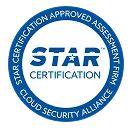

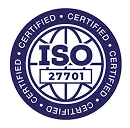









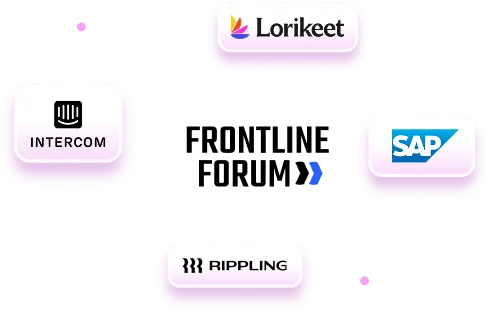
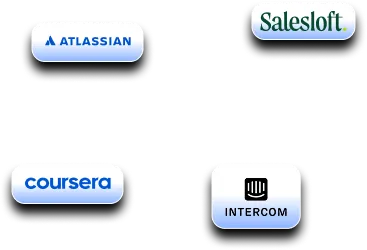


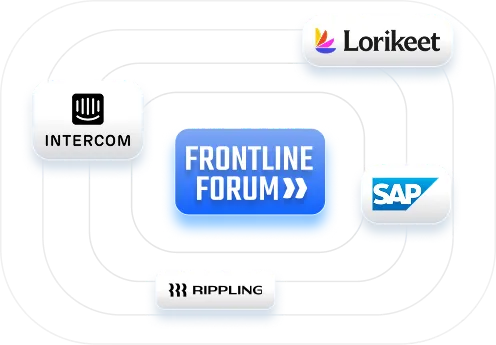
.webp)